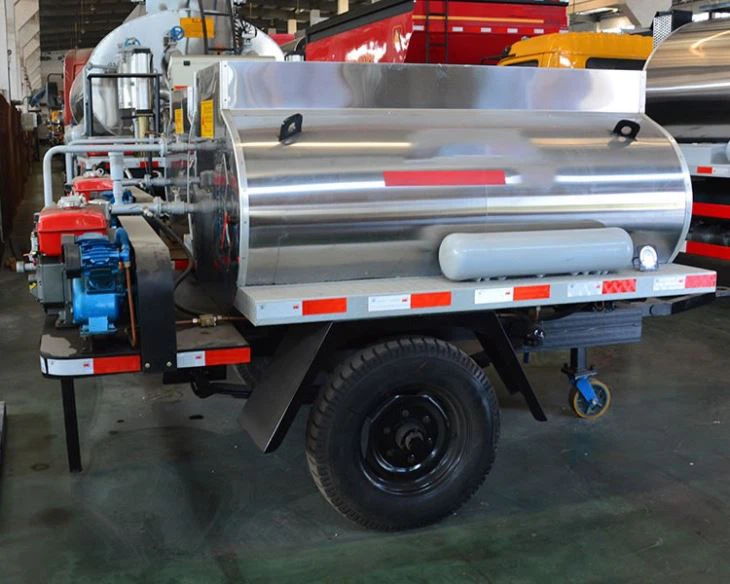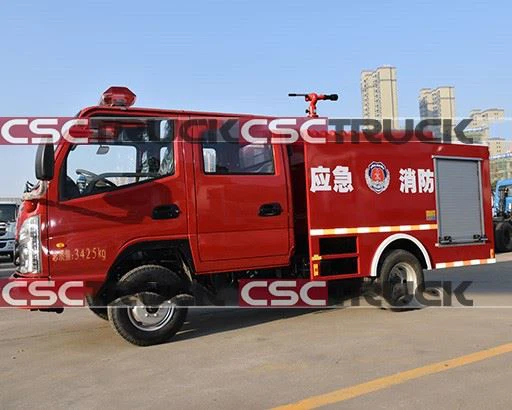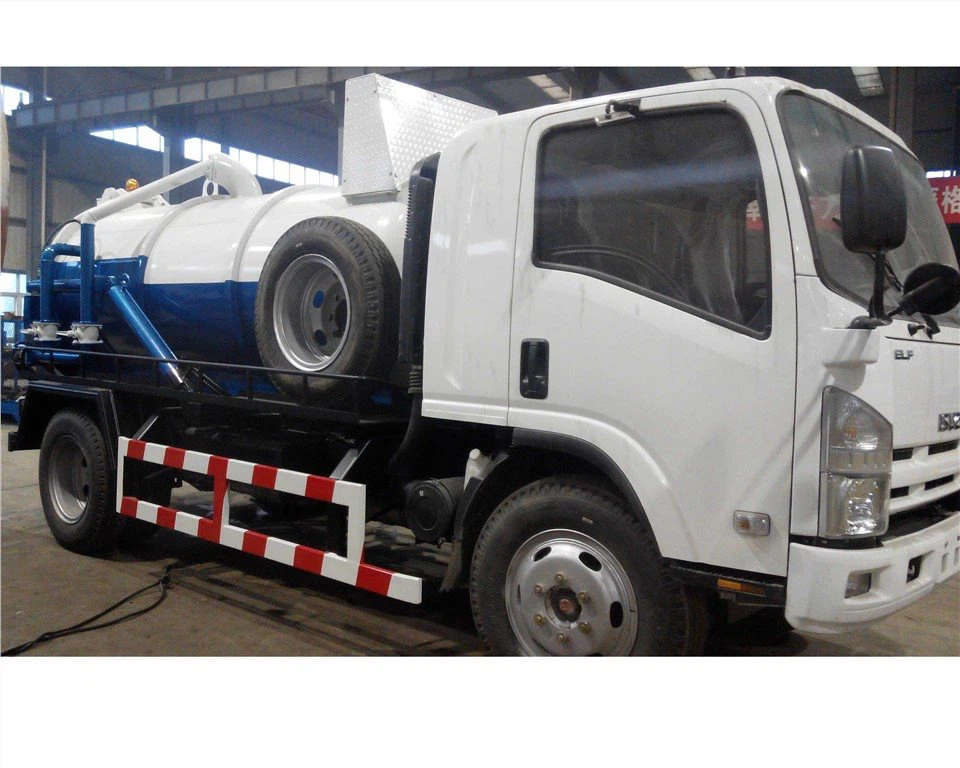Waste Management Roll Off Truck: A Comprehensive Guide

Waste management is an essential part of maintaining a clean and sustainable environment. Among the various tools and vehicles used in this industry, the waste management roll off truck stands out for its versatility and efficiency. This article explores everything you need to know about roll off trucks in waste management, including their operation, benefits, types, and best practices for use.
What is a Roll Off Truck?
A roll off truck is a specialized vehicle designed for transporting waste and debris. These trucks feature a large container that “rolls off” the back of the vehicle when it reaches its destination. The roll off container can then be loaded with waste materials, making it ideal for construction sites, renovation projects, and large clean-up jobs.
How Does a Roll Off Truck Work?
The mechanics of a roll off truck are relatively straightforward:
- The truck approaches the designated site and positions itself.
- A hydraulic system lowers the container to the ground.
- Once the container is filled, the truck uses its hydraulic system to lift the container back onto the truck bed.
- The truck then transports the full container to a landfill or recycling center.

The Importance of Roll Off Trucks in Waste Management
Roll off trucks play a vital role in effective waste management due to their ability to handle large volumes of materials efficiently. They are particularly useful in scenarios where traditional garbage collection methods are insufficient.
Types of Roll Off Trucks
There are various types of roll off trucks designed to cater to different waste management needs:
1. Conventional Roll Off Trucks
These trucks generally have a simple design with a hydraulic lift that raises and lowers the roll off container. They are typically used for standard waste disposal tasks.
2. Suction Roll Off Trucks
Equipped with suction pumps, these trucks are ideal for hazardous waste management. They can handle liquids and sludge, making them essential for certain industries.
3. Side Loader Roll Off Trucks
These trucks have a side-loading mechanism, allowing them to pick up containers from the side rather than the back. They are often used in residential areas.
4. Multi-Container Roll Off Trucks
These trucks can carry multiple containers simultaneously, increasing efficiency for larger waste management projects.
Benefits of Using Roll Off Trucks
Investing in roll off trucks offers numerous advantages for waste management companies and construction sites:
1. Efficiency
Roll off trucks can quickly and easily transport large quantities of waste, which can save time and labor costs.
2. Versatility
These trucks can handle various types of waste, including construction debris, yard waste, and even hazardous materials.
3. Cost-Effectiveness
By reducing the number of trips needed to dispose of waste, roll off trucks can yield significant savings in fuel and labor expenses.
4. Environmental Impact
Properly managed waste using roll off trucks helps reduce landfill overflow and promotes recycling efforts, benefiting the environment.
5. Safety
Roll off trucks minimize physical risks for workers by reducing manual handling of heavy waste materials.
Choosing the Right Roll Off Truck
Making the right choice of roll off truck depends on various factors:
1. Weight Capacity
Determine the maximum weight capacity you need based on the types of materials you will be transporting.
2. Container Size
Roll off containers come in different sizes. Common sizes include:
| Container Size (Cubic Yards) | Typical Uses |
|---|---|
| 10 | Small cleanups, landscaping projects |
| 20 | Medium renovation projects, small construction |
| 30 | Large construction sites, commercial cleanouts |
| 40 | Major industrial projects |
3. Hydraulic System Type
Assess whether you prefer a conventional or a more advanced hydraulic system based on your specific operational needs.
Best Practices for Operating a Roll Off Truck
To ensure safety and efficiency when operating a roll off truck, adhere to the following best practices:
1. Training
Make sure that all operators are thoroughly trained in safely operating the truck and understanding its mechanics.
2. Regular Maintenance
Conduct routine inspections and maintenance on the truck to ensure that the hydraulic system and other components are functioning properly.
3. Weight Regulations
Be mindful of weight regulations to avoid overloading the truck, which can lead to accidents and fines.
4. Proper Container Placement
Ensure that the roll off container is placed on stable ground and away from obstructions to facilitate safe loading and unloading.
Challenges in Roll Off Truck Operations
While roll off trucks are beneficial, there are challenges to consider:
1. Traffic and Access Issues
Poor access to job sites in congested or urban areas can make it difficult to maneuver roll off trucks.
2. Weather Conditions
Adverse weather can affect safety and operational efficiency, so plan accordingly.
3. Compliance with Regulations
Stay updated on local regulations concerning waste disposal to ensure compliance and avoid penalties.
Innovations in Waste Management Trucks
The waste management industry is continuously evolving, leading to innovative solutions:
1. Smart Technology
Modern roll off trucks are now equipped with GPS tracking and route optimization software, enhancing efficiency.
2. Eco-Friendly Options
New waste management trucks are designed to operate using alternative fuel sources, reducing the carbon footprint.
3. Advanced Safety Features
Improved safety features such as backup cameras and automated lift systems are becoming standard in newer models.
Cost Analysis of Roll Off Trucks
Understanding the financial implications of using roll off trucks can aid in decision-making:
1. Purchase vs. Lease
Evaluate whether to purchase or lease a roll off truck based on your financial situation and operational needs.
2. Operating Costs
Consider costs such as fuel, maintenance, and insurance when budgeting for roll off truck operations.
3. Return on Investment (ROI)
Calculate the expected ROI by estimating the amount of waste you’ll manage and associated revenue.
Frequently Asked Questions (FAQs)

1. What size roll off container do I need for my project?
Your choice should depend on the scale of the project. For small cleanups, a 10-yard container may suffice, while larger construction projects may require a 30-yard or even a 40-yard container.
2. How do I rent a roll off truck?
Contact a local waste management company or rental service. They will assist you in choosing the correct container and provide delivery and pickup services.
3. Are roll off trucks environmentally friendly?

When used correctly, roll off trucks facilitate efficient waste disposal and recycling, contributing positively to environmental sustainability.
4. Can roll off trucks handle hazardous materials?
Yes, some models are designed specifically to handle hazardous waste. Ensure compliance with local regulations regarding hazardous materials.
5. What maintenance is necessary for roll off trucks?
Regular maintenance includes checking the hydraulic system, inspecting brakes and tires, and ensuring the vehicle is free from debris.
6. How can I improve the efficiency of waste management using roll off trucks?
Utilize smart technology for routing, schedule regular pickups to avoid overflow, and provide proper training for operators to enhance safety and efficiency.
